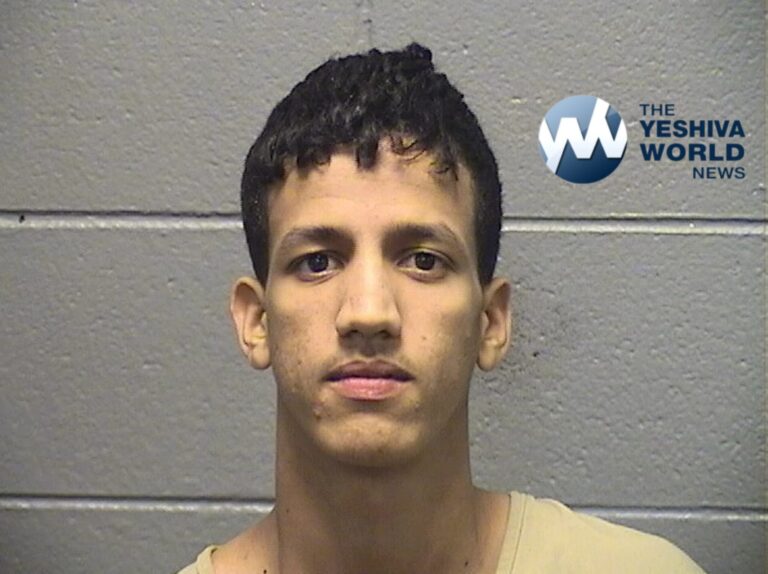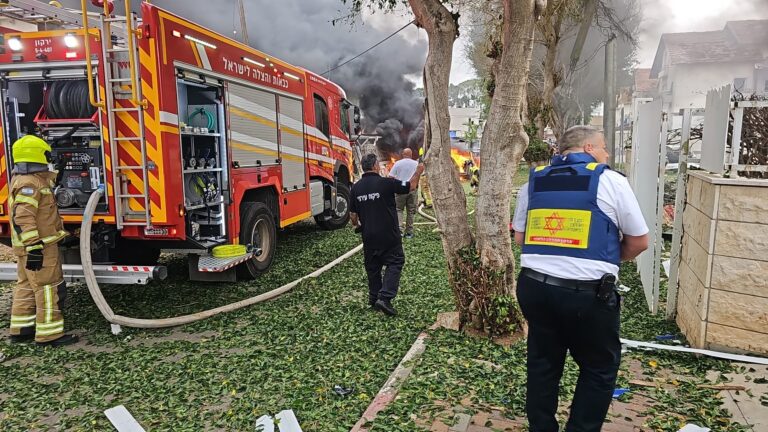 (By Yeedle Schreiber – YWN California Correspondent)
(By Yeedle Schreiber – YWN California Correspondent)
As YWN reported earlier today, a magnitude 5.4 earthquake occurred at 11:40am near Chino Hills, California which is approximately 30 miles southeast of downtown Los Angeles. Baruch Hashem no one was hurt and there was minimal property damage.
As a California native that went to Yeshivos on the East coast and Eretz Yisroel, I was always asked ‘how does an earthquake feel?’. So in the interest of sharing this experience with you, I’ll attempt to explain it.
I was walking down the corridor of an office building (19th floor) when I felt a silent tremble beneath my feet. I stopped for a second and tried to get my bearing. Even after going through a number of earthquakes, it still remains the farthest thing from your mind. As I stood still, I noticed up and down the corridor, other people stopped too. And the shaking continues. Sort of like a wavy feeling beneath your feet. After about 10 seconds, you remember the earthquake rules (Drop, Cover, Hold On). By then (especially in a taller building) it really feels like you’re going to fall if you’re not holding on. A few more seconds (it seems like an hour) and it was all over. That’s it!
What’s racing through all our minds is ‘is this the precursor for the ‘Big One’ they keep on warning us about?!’ As I make my way back to my office after speaking to my family, I murmur ‘Hodu Lashem Ki Tov’!
Then I wait for about 10 minutes for the frantic phone calls to start coming in from New York.
For our Southern California readers, here is some information for your preparedness and post earthquake use:
What to do before an earthquake:
Learn about earthquakes. Earthquakes strike suddenly, violently, and without warning at any time of the day or night. If an earthquake occurs in a populated area, it may cause many deaths and injuries and extensive property damage. Although there are no guarantees of safety during an earthquake, identifying potential hazards ahead of time. Advance planning can save lives and significantly reduce injuries and property damage.
Familiarize yourself with these terms:
•Earthquake
•Aftershock
•Fault
•Magnitude
Have Earthquake Safety Kits ready:
•At home
•In your car
•Out of your home (i.e. school / office / Shul)
What to do during an earthquake:
When Indoors:
Stay as safe as possible during an earthquake. Be aware that a larger earthquake might occur after the initial quake. Minimize your movements to a few steps to a nearby safe place and stay indoors until the shaking has stopped. When you feel an earthquake, duck under a desk or sturdy table. Stay away from windows, bookcases, file cabinets, heavy mirrors, hanging plants, and other heavy objects that could fall. Watch out for falling plaster and ceiling tiles. Stay covered or well protected environment until the shaking stops and hold onto your cover. If it moves, move with it. DROP to the ground; take COVER by getting under a sturdy table or other piece of furniture; and HOLD ON until the shaking stops. If there isn’t a table or desk near you, cover your face and head with your arms and crouch in an inside corner of the building.
When Outdoors:
Stay there. If you’re OUTDOORS, move to a clear area away from trees, signs, buildings, electrical wires and poles. Move away from buildings, streetlights, and utility wires. Once in the open, stay there until the shaking stops. The greatest danger exists directly outside buildings, at exits, and alongside exterior walls. Many of the outdoor fatalities have occurred when people ran outside of buildings only to be killed by falling debris from collapsing walls. Ground movement during an earthquake is seldom the direct cause of death or injury. Most earthquake-related casualties result from collapsing walls, flying glass, and falling objects.
If you’re DRIVING , pull over to the side of the road and stop. Avoid overpasses, power lines, and other hazards. Stay inside the vehicle until the shaking is over. Stop as quickly as safety permits and stay in the vehicle. Avoid stopping near or under buildings, trees, overpasses, and utility wires. Proceed cautiously once the earthquake has stopped. Avoid roads, bridges, or ramps that might have been damaged by the earthquake.
What to do after earthquake:
•Remain calm and reassure others.
•Make communications with your family and other loved ones.
•Inspect utilities in your home.
•Help others cope, especially children and the elderly.











2 Responses
I was living in LA for the 7.1 quake that hit about 8 or 9 years ago. It happened Friday night at about 250am. I awoke to the feeling of being on a train that was shaking side to side. The window shades and light fixtures were rattling badly too.
I too forgot at the time what needed to be done until after the quake finally stopped … at which time I actually fell back asleep.
That’s terrific. Now I’m all ready for “The Big One” here, inNew York!